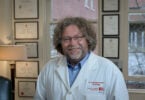It was early May 2023 when Angela Neufeld got the call that changed everything.
The Quesnel, British Columbia resident, then 47, was sifting through the clothes racks with her husband at Mark’s Work Wearhouse.
She frantically waved her phone to him across the store. “We’ve got to go!” she shouted.
Less than a year before, Neufeld had been diagnosed with AL amyloidosis, a rare and often misdiagnosed disease that causes abnormal protein deposits to accumulate in organs like the heart and kidneys, making them harden.
The disease had affected her heart so badly it was straining to pump and was racing away. It was beating so loudly it would drown out surrounding sounds like a TV program.
Neufeld was extremely ill. She was in late-stage heart failure and told the only chance of survival was a heart transplant. She was placed on a waitlist at St. Paul’s Hospital in Vancouver, the only place in British Columbia to perform cardiac transplants.
And that day in the store, the call came informing her a heart was available.
She needed to rush to Vancouver for surgery early the next morning. She quickly purchased the item she’d come for, a button-down shirt. Post-surgery, with a chest full of stitches, she wouldn’t be able to lift a shirt or sweater over her head.

It took a long time to get to this point. “I thought my symptoms were all in my head,” Neufeld remembers of the period before her AL diagnosis. She had burning sensations in her chest and fainting spells. Countless trips to the emergency room and various treatments uncovered no firm diagnosis. She blamed herself, saying she must have been in poor physical shape.
Finally, after myriad tests, doctors identified the condition. She spent months on a grueling regimen of chemotherapy, which is sometimes used to treat it. “It was intense and awful.” But her body responded well. Even so, she was told she still needed the transplant.
No blood flow to her head caused blackouts
” I didn’t believe them. I was in shock. They didn’t tell me how bad it was, but I knew, because I was blacking out and feeling faint all the time. There was no blood going to my head.”
After that call from St. Paul’s, the couple began the drive to Vancouver. They had no idea what lay ahead for them. She’d already had one false start a week before, when, after being told a heart was available, it was unsuitable for her.
“What if I didn’t wake up?”
There was also tense anticipation of the surgery. “I was terrified. What if I didn’t wake up?”
More immediate, literal hurdles would get in the couple’s way as they drove to Vancouver. Flooding and mudslides in the British Columbia Interior were causing evacuations and road closures. The trip became a tense race against the clock. “We encountered dead ends and washed-out roads, getting lost in unsafe situations.”
Greeted by the Omni documentary crew at St. Paul’s Hospital
One certainty was that a film crew was going to meet her at St. Paul’s. Local filmmakers Omni Entertainment was making a docuseries about the life-and-death drama of organ transplant. The first of four episodes aired on Knowledge Network November 19 while Neufeld’s episode was broadcast last night, November 26. To view it online, visit https://www.knowledge.ca/.
The series was done in partnership with BC Transplant, Vancouver Coastal Health and others.
“Zero hesitation” to participate in the series
Some people might not want to be recorded as they face such a major medical procedure, but not Neufeld.
“When (series director) Sheona McDonald asked me if I’d like to be in the series, “I thought, ‘This seems crazy.’ Then I instantly said yes. If I could help someone else (in a similar situation) catch this condition early, I was more than happy to do it right away. I had zero hesitation.”
She also wanted to promote organ donation and demystify it for others.
It turns out the filmmakers were practical people. After getting lost en route to St. Paul’s from all the road closures, McDonald researched a new route that did the trick.
The cameras met her in the night darkness when the couple pulled into the hospital. “And then that was kind of like, wow, this is reality.”
Wanting the cameras to capture everything
They followed her inside the elevator where she stood, weak and out of breath. They captured her conversation with her husband. They filmed her surgery. They documented the tough parts of her recovery.
She was given the option of not having certain parts filmed. “But I never wanted the cameras off.” She does jokingly recall, “I didn’t want them to film every scene of me having an emotional meltdown. You’re on a lot of medications and everything is so fresh and all this is so scary.”
In the months following her transplant, Neufeld noticed profound and positive changes. “The first time I heard my new heart, it felt empty. I was used to the loud, banging noise of my old heart,” she says. “Now I don’t hear anything.”

With her experience behind her, she has felt the urge to give back. She created a support community for women facing health crises, blending her professional counseling background with her personal insights. “I couldn’t find anything positive out there; I wanted to create a space that motivated and inspired others,” she explains.
Her journey through illness and recovery has been transformative. “The care I received at St. Paul’s was more than just medical—it was filled with compassion and humanity.” Her appreciation for the St. Paul’s transplant doctors and nurses and all members of her health-care team there is deep.
Watch Angela Neufeld’s dramatic story and those of other transplant patients in the latest episode of Transplant Stories.

Angela Neufeld’s life was saved because someone registered as an organ donor. You can do the same. To register: https://register.transplant.bc.ca/ Make sure to have your Personal Health Number with you.
If you think you’ve registered, but want to make sure, visit: https://register.transplant.bc.ca/verification
View the trailer for the powerful series.
Story by Ann Gibbon, Providence Health Care





